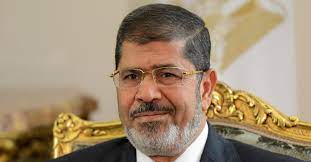Islamic Scholar Condemns Burning of Churches after Blasphemy Incident in Pakistan
Renowned intellectual and Islamic scholar from Pakistan Maulana Ahmad Javaid felt that the Jaranwala incident is not sanctioned by Islam and it has the potential to antagonise and repel people from Islam. Delivering a message on his YouTube Channel, Maulana said, “The Jaranwala blasphemy incident is not an Islamic act and has no religious sanction. The burning of copies of the Bible and Churches is highly condemnable. Unfortunately, the religious leadership fell short of condemning the incident vociferously and standing in solidarity with the victims. Muslims should visit the sites of violence, tender apologies and restore the places of worship and offer adequate compensation to the victims.
“Other than the government, the Muslim society should establish a fund to rehabilitate the victims of Jaranwala. He appealed to the Muslim community to take the incident seriously as the prestige and dignity of Islam are at stake. Muslims are not supposed to take the law into their own hands. If at all, they come to know of some incident, they should alert the concerned authorities. Muslims have no right to take revenge on their terms.”
10 Years on, Sisi’s Coup Continues Squeezing Egypt
Ten years ago, Abdel Fattah el-Sisi launched a coup against Egypt’s first democratically elected president in history, removing Mohammed Morsi from power, suspending the constitution, and establishing himself as leader of the country. Sisi said he was responding to the Egyptian people who had come out in droves in the months prior, protesting over fears that President Morsi was becoming authoritarian. Sisi promised political and economic stability in taking power.
Sisi went on to jail tens of thousands of political opponents, journalists, and rights activists, and imposed a national emergency to usher in his rule. Despite the crackdown on human rights in the country, including criminalising protests, arbitrary detentions, and clamping down on political parties, Egyptian society endured under the promise of economic stability. But experts and activists say that the economic meltdown in the country over the past several years coupled with increased repression is leading to a new wave of unrest in the country that the president is unequipped to deal with.
The Egyptian government has made efforts to reduce its prison population. In 2022, Cairo released 895 political prisoners, according to Amnesty International. However, Sisi’s apparent attempts to ease the crackdown on civil society have come amid further arrests and targeting of critics, according to Elizabeth Rghebi, the Mena advocacy director for Amnesty International USA.
“Over the last 10 years, the Egyptian authorities have continued to crush all forms of peaceful dissent and stifle civic space,” Rghebi said, “Thousands of human rights defenders, journalists, protesters and other actual or perceived government critics and dissidents remain arbitrarily detained for exercising their human rights.”


